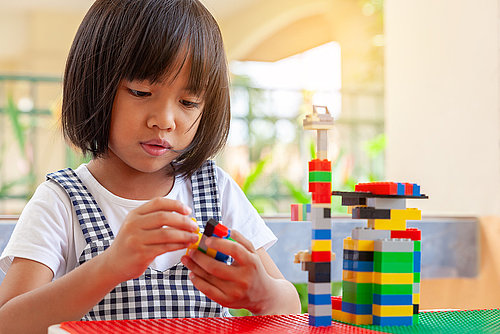
Education
Research | Social media | Marketing
Blog
How Parents and Teachers Should Work Together to Help Kids Understand Digital Citizenship and Their Digital Footprint

In a world where information is everywhere but credibility is often scarce, parents face a critical challenge in teaching their children how to separate truth from biased narratives. The internet has become a battleground where the loudest voices often drown out the most truthful ones, and with platforms increasingly prioritising engagement over accuracy, the digital landscape is changing in ways that make it harder than ever to distinguish fact from fiction. With so much misinformation competing for their attention, how can we ensure children grow up equipped to think critically and navigate the digital world with confidence?
The Move from Passive Consumers to Thoughtful Participants
Children growing up in an era of endless content are inevitably exposed to a diverse set of opinions. Social media and algorithm-driven platforms amplify sensationalism, where half-truths and emotionally charged narratives often take precedence over fact-based discussions. This environment shapes how young minds interpret the world around them, not based on the most credible sources, but on the most attention-grabbing content. Parents face the challenge of not just filtering harmful content but, more importantly, equipping their children with the skills to critically engage with what they are exposed to. It's essential that children learn to question and verify, so that they can contribute responsibly - understanding the lasting impact of their digital footprint and their role as active participants in the online world.
Breaking Down Silos to Create a Stronger Support System
The teaching of media literacy and digital citizenship at school is going a long way in providing children with the tools to question the bias and to think critically about the content they consume. However, this learning too often ends in the classroom. With limited resources, parents struggle to reinforce these lessons at home, leaving a gap in their child’s digital education. A few parent-teacher evenings a year aren’t enough. Real, ongoing engagement is necessary, with discussions focused not just on digital safety, but on digital ethics and the long-term impact of a child’s digital footprint. If parents and teachers work together to ensure children understand the impact of their digital actions, responsible online behaviour becomes a consistent priority both at home and in the classroom.
Empowering the Next Generation of Digital Leaders
The internet isn’t just something we consume; it’s something we shape with every engagement, every comment and share. Parents and teachers have the opportunity to instil habits of curiosity and discernment, empowering children to move beyond passive scrolling and become active contributors to a more credible and ethical online world. The digital space doesn’t just need better consumers of content - it needs individuals who question misinformation, and contribute meaningfully to discussions.
It shouldn’t be about the loudest voice shaping the digital world, but the most trusted. The real influencers are those who ask the right questions and who challenge, adding real value to conversations. By introducing these values early - before children even engage with social media - parents and teachers can ensure credibility outweighs clicks, and meaningful discussions can rise above fleeting trends. By instilling these values early, we can ensure the next generation has the skills and confidence to cut through the noise and engage with the digital world responsibly.
A Call to Action for All of Us
We stand at a pivotal moment where the way we guide our children through the digital world will define the future of our online spaces. It’s no longer enough to expect young people to navigate the complexities of digital media on their own. As parents and educators, we are active participants in shaping their understanding, teaching them not just to consume content but to engage critically with it.
The next generation has the potential to lead the charge in creating a more trustworthy and thoughtful digital world. But this requires more than just lessons in media literacy, it demands a collective effort, a partnership between home and school. If we invest in young people’s ability to question and to contribute meaningfully, we can empower them to transform the digital space from a source of noise into a platform for truth and integrity. By recognising our role, and the influence we have, we can ensure the next generation doesn’t just survive online, they thrive.


